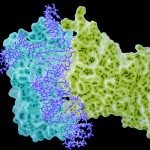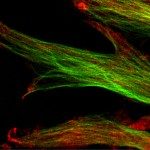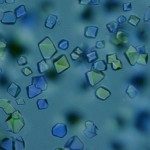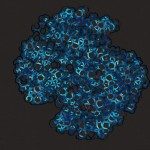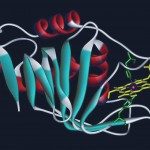Link to Pubmed [PMID] – 36586404
Link to DOI – 10.1016/j.str.2022.12.003
Structure 2023 Feb; 31(2): 152-165.e7
Type II secretion systems (T2SSs) allow diderm bacteria to secrete hydrolytic enzymes, adhesins, or toxins important for growth and virulence. To promote secretion of folded proteins, T2SSs assemble periplasmic filaments called pseudopili or endopili at an inner membrane subcomplex, the assembly platform (AP). Here, we combined biophysical approaches, nuclear magnetic resonance (NMR) and X-ray crystallography, to study the Klebsiella AP components PulL and PulM. We determined the structure and associations of their periplasmic domains and describe the structure of the heterodimer formed by their ferredoxin-like domains. We show how structural complementarity and plasticity favor their association during the secretion process. Cysteine scanning and crosslinking data provided additional constraints to build a structural model of the PulL-PulM assembly in the cellular context. Our structural and functional insights, together with the relative cellular abundance of its components, support the role of AP as a dynamic hub that orchestrates pilus polymerization.
